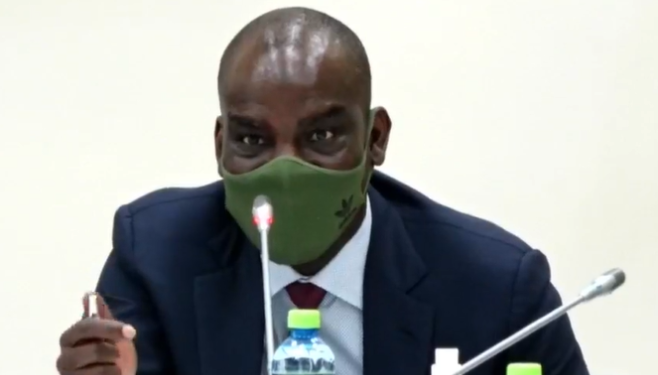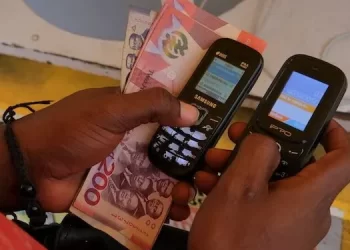The Minority in Parliament has warned the Finance Minister against misleading the public in order to secure approval for the controversial Electronic Transaction Levy (E-levy).
The NDC MPs stated that Ken Ofori-Atta’s assessment that the only way for the government to provide adequate funding for district assemblies is through the passage of the e-levy is false.
Haruna Iddrisu, Minority Leader, stated that the District Assembly Common Fund has been in arrears from 2018 to 2021 and that it is nothing new to use dust to cloud the public’s vision.
Mr. Ken Ofori-Atta stated during a town hall meeting in the Upper West Region that the implementation of the E-levy policy will go a long way toward enabling the government to fulfill its obligation to fund district assemblies across the country.
He added that the Finance Minister “is in arrears of over ¢2,133,000 yet he has been collecting revenue and just a dedicated 5% of revenue as required of him by the 1992 Constitution; he has not made it available.”
In a statement to the media on Wednesday, the Tamale South Member of Parliament urged Ghanaians to dismiss the claim and accused the Minister of being insincere with the people.
He noted that the Finance Minister “is not upholding the values of the provisions of Article 252 of the 1992 Constitution, which requires that 5% of total revenue is dedicated to the District Assembly Common Fund.”
According to him, the Finance Minister’s inability to provide funds and basic resources for the District Assemblies’ operation has resulted in the demise of a number of Regional Coordinating Councils and District Assemblies across the country.
Additionally, he stated that Mr. Ofori-Atta “should stop misleading the Ghanaian public using District Assembly Common Fund as justification to impose the e-levy.”
Concerning the E-levy
On Wednesday, November 17, 2021, when Finance Minister Ken Ofori-Atta presented the 2022 budget, he announced that the government intends to implement an Electronic Transaction Levy (e-levy).
The levy, he explained, is being implemented to “widen the tax net and rope in the informal sector.” This follows a previous announcement by the government that it intends to discontinue road toll collection.
The proposed levy, which was scheduled to take effect in January 2022, would apply a 1.75 percent surcharge to the value of electronic transactions. It includes payments made using mobile money, bank transfers, merchant payments, and inward remittances. Transactions up to GH100 per day are exempt.
The Finance Minister explained the government’s decision by revealing that total digital transactions in 2020 are expected to exceed GH500 billion (approximately $81 billion), up from GH78 billion ($12.5 billion) in 2016.
As a result, the tax net must be expanded to include the informal sector.
While the government has argued that it is an innovative method of revenue generation, scores of citizens and stakeholders expressed varying opinions on its appropriateness, with many strongly opposed it.
While others have argued in favor of the levy, a segment of the population believes that the 1.75 percent e-levy is an insensitive tax policy that will exacerbate the country’s already prevailing hardship.
Read Also: MASLOC is for all Ghanaians – CEO
SOURCE: myjoyonline




























